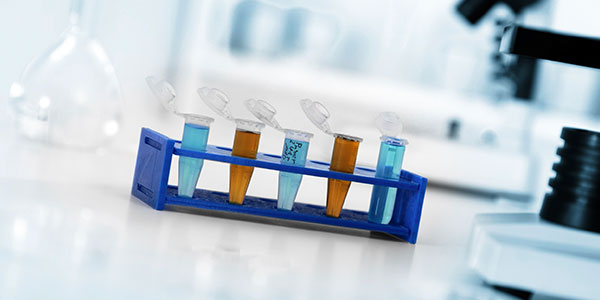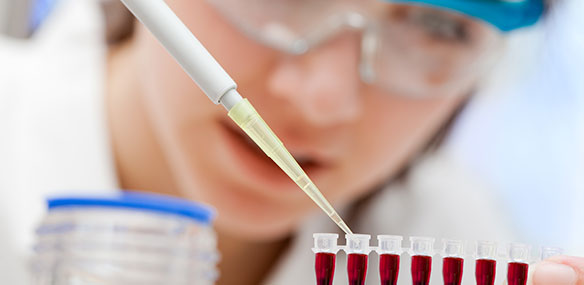The majority of cancer is sporadic and occurs due to cancer-causing genetic mutations that happen over time. However, some people are born with a genetic mutation, usually inherited from their mother or father, which predisposes them to an increased chance of developing certain types of cancers.
Cancer genetic counselors may:
- Provide cancer risk assessment based on personal and family history
- Coordinate genetic testing to detect genetic mutations that are associated with cancer risk
- Provide education, support, and resources for families with a hereditary cancer syndrome or a strong personal and/or family history of cancer
- Make recommendations for cancer screening and management based on a genetic mutation or family history

Who can benefit from cancer genetic counseling?
By providing cancer risk assessment, we can determine if a person may have a hereditary cancer syndrome that causes specific cancer risks. For individuals at increased risk of developing certain types of cancers, we may recommend proactive management and screening options (i.e. more frequent colonoscopy, breast MRI or prophylactic mastectomy). These management options may contribute to earlier cancer detection and/or cancer risk reduction.
Individuals may be eligible for cancer risk assessment if they have a personal or family history (maternal or paternal) that suggests a hereditary cancer syndrome. Features of a hereditary cancer syndrome include (but are not limited to):
- Early onset of cancer (breast cancer ≤45 years old, colorectal cancer ≤50 years old)
- Multiple primary cancers in one individual (colorectal and endometrial cancer; breast and ovarian cancer)
- Bilateral cancer (multifocal renal cancer, bilateral breast cancer)
- Cancer in multiple generations of the family
- Same type of cancer in many individuals in a family
- Certain rare tumors (ovarian cancer, adrenocortical carcinoma)
- Unusual presentation of cancer (male breast cancer)
- Ethnic populations at increased risk of having a hereditary cancer syndrome (Ashkenazi Jewish and breast cancer)
How do you get started?
Your doctor should review your known risk factors, and fax a referral to the Mills-Peninsula cancer center at (650) 696-4664. Our scheduling staff will contact you to set up the appointment. Appointments with our genetic counselor generally last one to 1.5 hours.
To speak directly to our genetic counselor, call (650) 696-4799.












